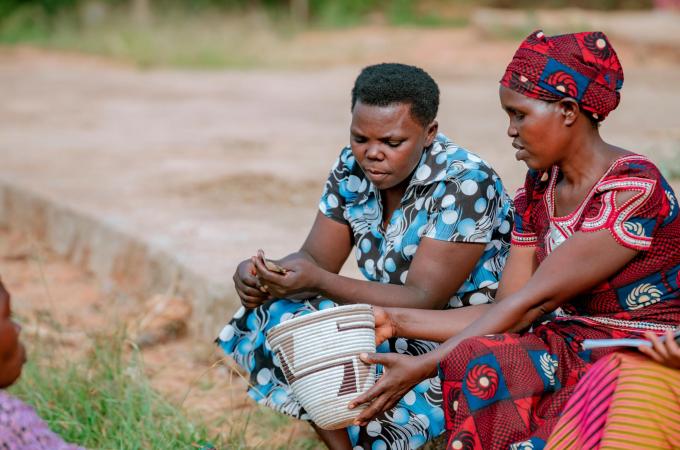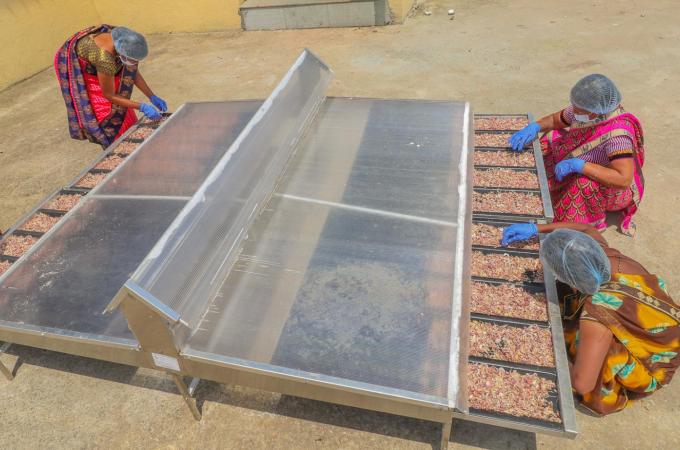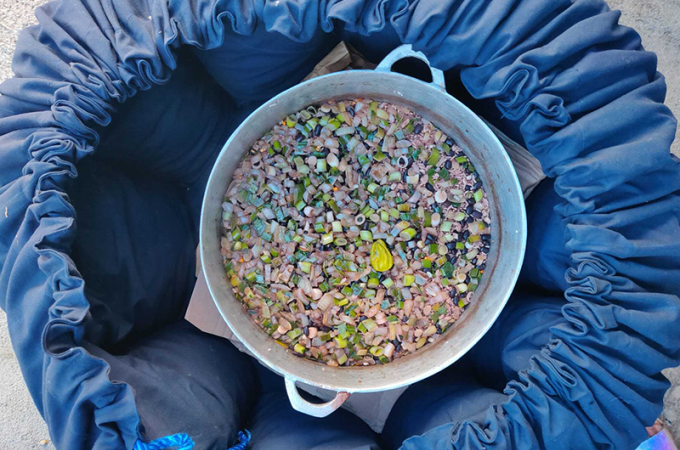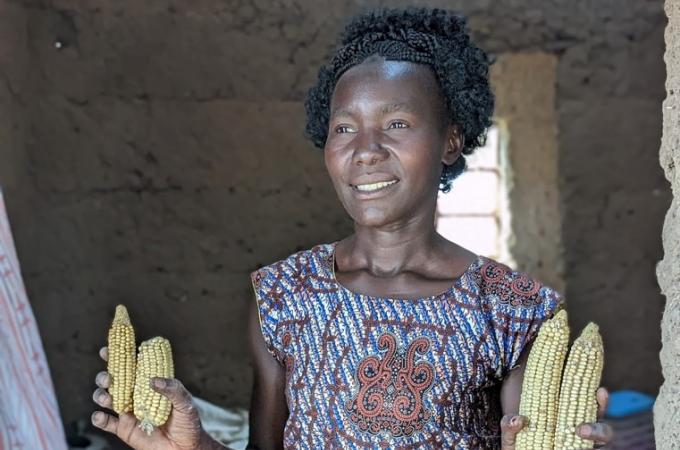Zero Hunger is only possible when everyone has equal opportunities, access to resources and a voice in the decisions that shape their households, communities and food security. WFP mainstreams gender into all programmes and activities including strategies, guidelines, training, project design, implementation and evaluation. At the WFP Innovation Accelerator, we invest in gender-responsive solutions and women-led innovations to address the root causes of gender inequalities affecting food security and nutrition. Gender is a cross-cutting priority within our innovation portfolio and a key focus of many of our programmes.
Invest in change
Advancing women's leadership in humanitarian ventures
How can we advance women’s leadership in the humanitarian sector to accelerate change?
Juveline Ngum, Founder and CEO of BleagLee, and Tayma Almezogy, People and Culture Manager at Speetar, joined us on LinkedIn to explore their journeys as women leaders working for local humanitarian ventures.
We delved into the significance of investing in women's leadership within the humanitarian sector, sharde stories and discussed actionable strategies for promoting gender diversity and inclusivity within humanitarian ventures.
Juveline Ngum, Founder and CEO of BleagLee, and Tayma Almezogy, People and Culture Manager at Speetar, joined us on LinkedIn to explore their journeys as women leaders working for local humanitarian ventures.
We delved into the significance of investing in women's leadership within the humanitarian sector, sharde stories and discussed actionable strategies for promoting gender diversity and inclusivity within humanitarian ventures.
Watch the event
Why promote gender through innovation?
Globally and in every region, women are more food insecure than men.
Gender inequality is both a cause and effect of hunger, malnutrition and poverty. Women and girls of reproductive age have unique nutrition needs, yet they are often the members of the family who eat last, least and worst.
Women play a critical role in food production.
Globally, women are responsible for 50 percent of food production and are more often than not responsible for the distribution of food within their household. Still, they report higher levels of food insecurity than men.
There is no prospect of achieving SDG2 (Zero Hunger) without achieving SDG5 (Gender Equality).
There is a correlation between gender equality and food insecurity. The more gender inequality in a country, the hungrier people are. Zero hunger is only possible when everyone has equal opportunities, access to resources, and a voice in the decisions that shape their households and communities.
Investments in gender equality and women’s empowerment creates a ripple effect.
A more gender equal world is beneficial for everyone. Evidence shows that when women and girls have better access to information, resources, services, decision-making, education and economic opportunities, the result is increased food security and improved nutrition for themselves, their families and their communities. Investing in women is therefore a key way to expand the impact of our innovations at the WFP Innovation Accelerator.
Empower women farmers with ShareTheMeal
Despite growing food, many smallholder farmers do not have enough to feed themselves. With little or no access to funding to grow their businesses, it leaves many unable to progress their livelihoods. This especially affects women and fuels cycles of financial exclusion. Currently, 35% of women do not have a bank account globally.
WFP is on the ground empowering female farmers through its SheCan project. SheCan is a blended finance initiative that funds WFP programmes focused on resilience and economic growth for women. There is a 20-30 percent projected increase in agricultural yield if women have access to the same resources as men. This is what SheCan strives for. As part of the program, WFP provides women with loans which they can use to expand their business. This includes financial training, digitalizing processes and buying supplies such as seeds, herbicides and fertilizers. This enables them to expand their produce and in turn, income.
SheCan aims to reach 6,840 smallholder farmers and micro-entrepreneurs in its pilot projects in Rwanda, Zambia and Peru.
WFP is on the ground empowering female farmers through its SheCan project. SheCan is a blended finance initiative that funds WFP programmes focused on resilience and economic growth for women. There is a 20-30 percent projected increase in agricultural yield if women have access to the same resources as men. This is what SheCan strives for. As part of the program, WFP provides women with loans which they can use to expand their business. This includes financial training, digitalizing processes and buying supplies such as seeds, herbicides and fertilizers. This enables them to expand their produce and in turn, income.
SheCan aims to reach 6,840 smallholder farmers and micro-entrepreneurs in its pilot projects in Rwanda, Zambia and Peru.
Share The Meal today!
Gender-responsive innovations






